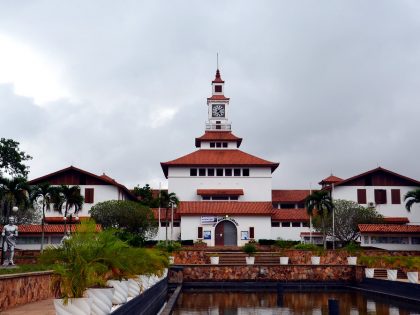
The violence in Ethiopia
The imminent and existential danger to Ethiopia is not Abiy Ahmed and an oppressive government. It is violent ethno-nationalism.

The imminent and existential danger to Ethiopia is not Abiy Ahmed and an oppressive government. It is violent ethno-nationalism.

Amilcar Cabral remains inspirational for Africans and non-Africans challenged by injustice and oppression.

Americans could learn a thing or two from Africans’ history of resisting structural adjustment policies.

We need to reimagine our conceptions of feminist justice in South Africa: Putting people in cages is not liberation.

The recent suspension of Nigeria’s anti-corruption tsar provides an opportunity to re-assess the country's anti-corruption approach.

African societies are failing to systematically capture the true impact of COVID-19.

Kamala Harris should be critiqued or celebrated not according to a faulty and disingenuous understanding of her lineage, but on the basis of her actual policy positions and future governing vision.

The government of Zimbabwe has decided it does not care whether Zimbabweans live or die.

On the other side of the pandemic, we must strengthen and build strong working-class movements to challenge imperialism and neocolonialism.

When considering Herman Mashaba’s new political plans, the South African public must reckon with the former mayor of Johannesburg's actual record.

Ghana’s ruling party has proposed a new law to control the country’s public universities. The country’s academics are fighting it.

Burundian refugees in Nakivale Refugee Settlement in Uganda are enacting grassroots responses to COVID-19.

Western media coverage of Ethiopia’s political crisis turns a blind eye to the grassroots movement behind the protests.

In Sudan's capital, security forces arbitrarily enforce a haphazard lockdown.

Regular Kenyans try to survive the economic fallout from the coronavirus.

Eko Atlantic in Lagos, like Tatu City in Nairobi, Kenya; Hope City in Accra, Ghana; and Cité le Fleuve in Kinshasa, DRC, point to the rise of private cities. What does it mean for the rest of us?

Three activists from the Assembly of the Unemployed talk to us about the challenges facing working-class communities in South Africa.

Rather than addressing food scarcity, genetically modified crops may render African farmers and scientists more, not less, reliant on global markets.

Plutôt que de pallier l’insécurité alimentaire, les cultures génétiquement modifiées risquent de rendre les agriculteurs et les scientifiques africains plus, et non moins, dépendants des marchés mondiaux.

The task is to recapture progressive thought and policies from post-independence Africa for our times.